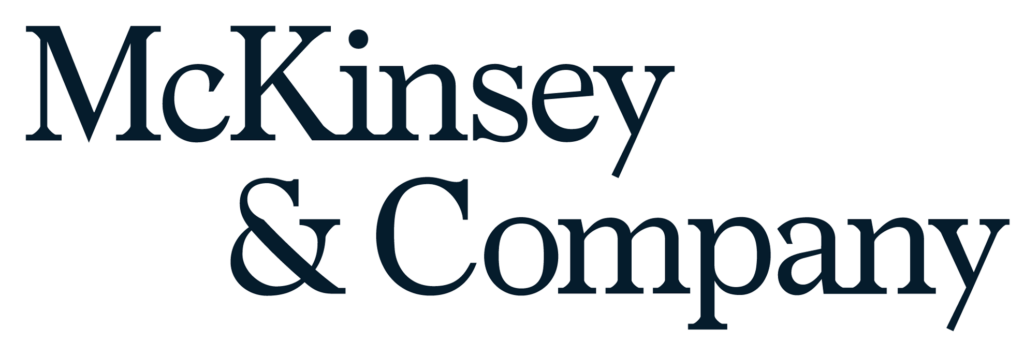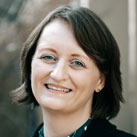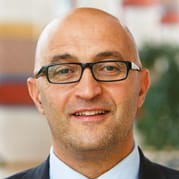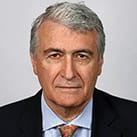13th Risk Summit (2022)

21 Jun 2022
15:00 -21:00
22 Jun 2022
09:00 -16:00
Times are shown in local time.
Open to: Specialists and business managers, including threat specialists, academics, policy-makers, practitioners and advisors

Cambridge Judge Business School
Trumpington St
Cambridge
CB2 1AG
United Kingdom
Systemic Risks and Interlinked Global Challenges
Systemic and interlinked global challenges are embedded in the thinking of companies, governments and markets. The appetite to grapple with these has developed in bursts, typically in response to actual events but often languishing over time. This summit frames the response of companies, nations and global societies to the threat of shocks and trends whose impacts may connect across geographies into future decades. The macro view assesses governments & markets, their appetite and fitness for understanding how global networks, which increase economic flows, increase tail risk for the world. The corporate view asks how to assess the exposure of one’s value chain to external changes. In both cases, the coin of chance has opportunity as well as disaster stamped on it; opportunity or threat, for whom? This conference proposes an active agenda at different stakeholder levels – to embed knowledge of systemic and interlinked global challenges into planning today and response as the need arises.
Keynote talk by Professor Ian Goldin, Professor of Globalisation and Development, University of Oxford with highlights from his recent book, “Rescue: From Global Crisis to a Better World”
We invite participation from a wide variety of specialists and business managers, including threat specialists, academics, policy-makers, practitioners and advisors to explore these topics together. The conference will be held at Cambridge Judge Business School with dinner at Queen’s College, University of Cambridge.
Registration closed
Registration for this event is closed. If you are interested to hear about upcoming events and other Centre-related news and resources, please join our mailing list.

Principal knowledge partner

Platform partner

Programme
Day 1: Plenary Session 1
An Economic History of Large-Scale Transitions
15:00 – 16:00
Registration, tea and coffee
16:00 – 16:30
Welcome and Highlights from the Centre
Michelle Tuveson, Chairman & Executive Director, Cambridge Centre for Risk Studies
16:30 – 17:15
Ian Goldin, Professor of Globalisation and Development, University of Oxford
17:15 – 17:45
Moderated by: Michelle Tuveson, Chairman & Executive Director, Cambridge Centre for Risk Studies
- Andrew Coburn, Chief Scientist, CCRS and CEO, Risilience
- Daniel Ralph, Academic Director, CCRS and Professor of Operations Research, CJBS
- Trevor Maynard, Director of Systemic Risk Research, CCRS
17:45 – 18:00
Conclusion
Daniel Ralph, Academic Director, CCRS and Professor of Operations Research, CJBS
18:00 – 19:00
Networking Reception
CJBS Foyer
19:15 – 21:00
Summit Dinner at Queen’s College
Dinner Speech: Financial Examples of Systemic Risk
Lord Professor John Eatwell
Day 2: Plenary Session 2
Responding to Systemic Threats
09:00 – 09:30
Tea and coffee
09:30 – 09:35
Trevor Maynard, Director of Systemic Risk Research, Cambridge Centre for Risk Studies
09:35 – 09:45
Julian Enoizi, Global Head of the Public Sector Solutions Practice, Guy Carpenter
09:45 – 10:05
Risk Flashes: Fast Paced Summaries of the Centre’s Systemic Research
Geopolitical Risk
Tamara Evan, Risk Affiliate, Cambridge Centre for Risk Studies
Jacob Barrett, Business Risk Analyst, Risilience
Trevor Maynard, Director of Systemic Risk Research, Cambridge Centre for Risk Studies
10:05 – 10:35
Moderated by: Tamara Evan, Risk Affiliate, Cambridge Centre for Risk Studies
- Julian Enoizi, Global Head of the Public Sector Solutions Practice, Guy Carpenter
- Timothy Less, Programme Manager, European Disintegration Studies, University of Cambridge Centre for Geopolitics
- Jim Hall, Professor of Climate and Environmental Risk, University of Oxford
10:35 – 11:00
Sir Oliver Letwin, ex-Cabinet Member and Author
11:00 – 11:30
Tea and coffee
Day 2: Plenary Session 3
Climate Change Risk and Systemic Impacts
11:30 – 11:40
Simon Ruffle, Chief Product Officer, Risilience
11:40 – 12:00
Trevor Maynard, Director of Systemic Risk Research, Cambridge Centre for Risk Studies
12:00 – 12:45
Lightning Talks: The Changing Landscape of Business Risk and the Environment
Oliver Carpenter, Head of Environmental Risk Analytics, Risilience
Preparing for Climatic Business Disruption: The Changing Landscape of Physical Risk
Richard Newton, Climate Change Modeller, Risilience
Natural Capital as the Next Business Risk
Clare Allen, Senior Environmental Risk Modeller, Risilience
Putting a Price on Environmental Risk
Tom Harvey, Vice President of Product Management, Risilience
12:45 – 13:00
Nigel Brook, Partner, Clyde & Co
13:00 – 14:00
Risk Summit Group Photo Lunch
Day 2: Plenary Session 4
McKinsey Risk Prize and parallel sessions
Moderated by: Daniel Ralph, Academic Director, CCRS and Professor of Operations Research, CJBS
14:00 – 14:20
Energy and Power Risk
Fransje van der Marel, Partner, McKinsey
14:20 – 15:15
Parallel Sessions
Parallel Session 1: Global Markets and Business Transformations
Lecture Theatre 1
Moderated by: Michelle Tuveson, Chairman & Executive Director, Cambridge Centre for Risk Studies
- Alessandra Mongiardino, Director of Financial and Strategic Risk, NatWest
- Khal Soufani, Director of Centre of Circular Economy
- Fransje van der Marel, Partner, McKinsey
Parallel Session 2: Modelling of Systemic Risks
Chen Tsao Lecture theatre
- Modelling of Scenarios – Moderated by: Trevor Maynard, Director of Systemic Risk Research, Cambridge Centre for Risk Studies
- Making the Results Targeted with a Digital Twin – Jay Jung, Lead Corporate Finance Analyst, Risilience
- Making Models Actionable – Gabriele La Malfa, Research Assistant, Cambridge Centre for Risk Studies
- Interview with an Expert Modeller – David Baxter, Vice President, Head of Exposure Management, Renaissance Re
Parallel Session 3: Grand Challenges of Climate & Sustainability – Going from TCFD to TNFD
Fadi Boustany Lecture theatre
Moderated by: Andrew Coburn, Chief Scientist, Cambridge Centre for Risk Studies and CEO, Risilience
- Oliver Carpenter, Head of Climate Change Analytics, Risilience
15:50 – 16:00
Concluding Remarks
Moderated by: Michelle Tuveson, Chairman & Executive Director, Cambridge Centre for Risk Studies
16:00
Tea and Coffee Break
Speakers
Clare Allen
Senior Analyst at Risilience
Dr Clare Allen is a senior analyst in the Risilience environmental risk team, focussing on physical and transition risk from climate change. Clare has substantial experience in solving problems driven by climate change and meteorology in a wide range of applications relating to net zero, food and water security, air pollution and developing educational programmes.
Prior to joining Risilience, Clare was an independent contractor working with clients The British Antarctic Survey and Ramboll to facilitate their mission for achieving Net Zero by 2040 for the Rothera Research Station in Antarctica.
Clare holds a BSc Hons Environmental Science, a MSc in Applied Meteorology and Climatology, and a PhD in Atmospheric Physics Modelling.
Nigel Brook
Partner at Clyde & Co
Nigel Brook is a partner at international law firm Clyde & Co, where he specialises in reinsurance.
He is a founder member of the firm’s global Resilience and Climate Risk practice, and advises and presents on climate change issues including duties of care, liability and governance.
Andrew Coburn
CEO and a founder member of Risilience
Andrew is CEO and a founder member of Risilience. He is responsible for the overall business success and direction of the company, and was the main architect behind the models and analytics that go into the Climate Risilience™ and Enterprise Risilience™ platforms.
Andrew has previously been one of the early-stage innovators of the catastrophe modelling industry for insurance, where he has created and brought numerous analytics products to market.
Andrew is one of the founder members of Cambridge Centre for Risk Studies at Judge Business School, University of Cambridge, where he maintains a position as Chief Scientist.
Julian Enoizi
CEO of Pool Re
Julian Enoizi is the CEO of Pool Re, the Government backed UK terrorism reinsurance mutual. He joined Pool Re in September 2013, with the mandate to bring a fresh perspective to a company that had changed little since its formation in 1993.
Since then he has presided over the repositioning of the organisation and a series of significant advancements. These include the renegotiation of Pool Re’s relationship with HM Treasury, introduction of a more sophisticated underwriting proposition requiring an amendment to an Act of Parliament, the purchase of the world’s largest terrorism retrocession programme, the launch of the world’s first terrorism Catastrophe Bond and a significant investment into a partnership with the Home Office in respect of a risk mitigation project.
In addition, Pool Re is recognised a central sponsor of thought leadership initiatives and international collaboration with similar national level terrorism (re)insurance arrangements.
In 2018, John Glen, Economic Secretary to the Treasury, described Pool Re as being “widely recognised as the world’s leading terrorism pool”.
Thomas Harvey
VP Product at Risilience
Thomas is VP Product at Risilience and is responsible for the overall strategy and commercial success of the Risilience product suite. He also leads the data science and model development team. In this role Thomas defines the product strategy and roadmap and, working closely with the development teams, manages the end-to-end development lifecycle.
Prior to joining Risilience Thomas worked at Guidewire Software where he led the European Predictive Analytics and Risk Consulting team. Thomas spent seven years at Risk Management Solutions (RMS) in a variety of client-facing and product-management roles.
Thomas holds a BSc (Hons) from the University of Leeds in Biochemistry and Bioinformatics.
Jay Jung
Lead Corporate Finance Analyst at Risilience
Dr Jay Jung is a Lead Corporate Finance Analyst at Risilience. He is responsible for building and maintaining the financial digital twin, a key component of Risilience’s stress-test scenario development approach in solving complex issues in enterprise and climate risk management.
Jay has closely worked with senior executives at global businesses and non-profit organisations to help them develop, design, implement and review/calibrate strategic plans. Jay’s ability to gain meaningful insight from a multi-faceted analysis adds values to Risilience’s efforts to develop a comprehensive risk management solution that is designed to help executives make informed decisions.
Jay holds a PhD degree in History from the University of Cambridge.
Trevor Maynard
Director of Systemic Risk at the Cambridge Centre for Risk Studies
Dr Trevor Maynard is the Director of Systemic Risk at the Cambridge Centre for Risk Studies located at the Judge Business School.
He qualified as an actuary and holds a PhD in Statistics from the LSE and a Masters in Pure Mathematics from the University of Warwick.
His work has involved risk modelling in various guises from Pensions and Life Assurance to general insurance, working for firms such as Lloyd’s of London and Mercer. Whilst at Lloyd’s his team produced risk reports on subjects including Pandemics, Climate Change, Deep tail Marine disasters, Nano Technology, Geopolitics, AI, Robotics and IoT working with many think tanks, universities and specialist risk modelling firms.
Additionally he advises insurtech firms on risk and data science.
Daniel Ralph
Professor of Operations Research at Cambridge Judge Business School
Academic Director, Centre for Risk Studies
Professor Daniel Ralph is a Founder and Academic Director of the Centre for Risk Studies, Professor of Operations Research at the University of Cambridge Judge Business School, and a Fellow of Churchill College.
Daniel’s research interests include identification and management of systemic risk, risk aversion in investment, economic equilibria models and optimisation methods. Management stress test, via selection and construction of catastrophe scenarios, is one focus of his work in the Centre for Risk Studies.
Another is the role and expression of risk management within organisations. Daniel engages across scientific and social science academia, a variety of commercial and industrial sectors, and government policy making. He was Editor-in-Chief of Mathematical Programming (Series B) from 2007-2013.
Khal Soufani
Director of Centre of Circular Economy Management Practice
Professor of Financial Economics & Policy
Professional experience Management Practice Professor of Financial Economics & Policy, and a member of the Economics & Policy group at the University of Cambridge Judge Business School, Professor Soufani holds a masters degree in Applied Economics and a PhD in Financial Economics.
Professor Soufani has published extensively in economics and finance in areas relating to financial management, corporate restructuring, M&A, private equity, venture capital and family business and the financial and economic affairs of small to medium-sized enterprises.
His research also includes work on economic growth and innovation relating to the circular economy and fast-growing markets and economies.
His work is widely cited and included in policy reports by organisations such as the EU, OECD and the Institute of Directors. His work has also been cited and published by the World Economic Forum.
He sits on the editorial boards of a number of international academic journals. Before joining academia, Professor Soufani worked in investment banking in the area of bond and money market trading.
Professor Soufani has been the academic programme director for many Executive Education programmes for major companies and financial institutions as well as government organisations.
Professor Soufani was an Associate Professor of Finance at Concordia University in Canada until April 2013 and has a PhD from the University of Nottingham.
Fransje van der Marel
Leader in McKinsey’s Electric Power & Natural Gas Practice
Fransje is a Partner in Amsterdam. She joined McKinsey in 2007 in Amsterdam and has extensive experience in the (renewable) power, oil & gas and mining sector working with both the private sector and government across Europe, Middle East and Africa. Throughout her McKinsey career she was based for 7 years in Johannesburg. Fransje leads McKinsey’s global energy transition service line and the Sustainability group in the Netherlands.
Selected McKinsey experience
- Deep experience around developing risk taxonomies, risk exposure mapping and quantification for energy businesses and setting up portfolio/risk optimization groups within global energy companies
- Led various energy transition strategies and green business building efforts for integrated O&G / Chemicals companies including the diversification into renewables, hydrogen, sustainable air fuels
- Led multiple analytics transformation in trading and in operations including introducing agile ways of working
- Drove many ‘new energy’ related strategies and business building efforts incl. development of PV and Battery business for a global renewable player, the set up of the renewables business of an incumbent power company and, Barack Obama’s Power Africa Roadmap to develop 30 GW and 60 mio connections across the continent
Education / Prior experience
- Fransje holds a Masters degree in Economics from the University of Amsterdam (Netherlands) and studied at Bocconi University School of Management (Italy) and Pompeu Fabra (Spain). She graduated on CO2 emission trading and the linking of Kyoto to EU ETS
- Prior to joining McKinsey, Fransje worked for a utility in renewables and trading
- Fransje has done multiple publications including MGI’s Reverse the curse: Maximizing the potential of resource-driven economies
Leonardo Arduini
Global Markets Chief Operating Officer at Citi
“Leo” Arduini is Global Markets Chief Operating Officer at Citi. Leo has over 30 years’ experience in global markets, across a variety of trading, sales, coverage and management roles in different jurisdictions.
Starting his career in financial markets as a Rates trader, Leo more recently served as Global Head of Rates Sales in 2008–2010, Citi Country Officer and Head of Markets for Italy in 2010–2012.In March 2012, he was appointed Head of Investor Sales for EMEA Markets (Europe, Middle East and Africa)a region which spans over 50 countries, with responsibility for the sales coverage and distribution of Citi’s global market product platform to investor and financial institution clients, across EMEA.
In March 2014, he was appointed EMEA Head of Markets, responsible for the overall strategy of GlobalMarkets in the EMEA region; he’s been in the role until June 2022.Leo is a board member of Citigroup Global Markets Limited UK, Citigroup Global Markets Europe AG, Chairman of GFMA, and Board Member of AFME.Prior to joining Citi, he briefly collaborated with Bocconi University and was Analyst at Borsa Italiana.
He has also held positions in fixed income trading at San Paolo Finance (now Banca Intesa Group), as a board member of MTS(Mercato Italiano Titoli di Stato SpA), as Head of Sales and Distribution at Caboto (Banca Intesa Group),and at Banca Monte Paschi Siena as General Manager of Finance and Global Markets. Leo graduatedcum laude in Business Administration, at Bocconi University Milan in 1987.
Oliver Carpenter
Head of Environmental Risk Analytics at Risilience
Oliver is the Head of Environmental Risk Analytics at Risilience, where he leads the research and model development practice related to climate change, sustainability, and natural capital risks.
He has been instrumental in developing Risilience’s science and quantitative models to assess financial risks to businesses from environmental risks. Oliver is passionate about empowering organisations with innovative analytics to address the double-materiality of environmental risk and support net zero business transformation.
Previously in his role at the Cambridge Centre for Risk Studies, Oliver’s research focused on quantifying the economic impacts of natural catastrophes and emerging risk scenario development for enterprise risk management.
He holds a Master’s degree in Environmental Risk, majoring on physical climate change risk and natural hazard models, and a BSc in Physical Geography from Durham University.
Lord John Eatwell
President of Queens’ College
Lord Eatwell is President of Queens’ College. He is also a director of SAV Credit and an adviser to the private equity firms Warburg Pincus & Company International and Palamon Capital Partners.
He has been a teaching fellow at Harvard University and a Visiting Professor at Columbia University, the University of Massachusetts at Amherst, the University of Amsterdam and the New School for Social Research, New York.
In 1988, he was part of the team that set up the Institute for Public Policy Research, one of Britain’s leading think tanks. He entered the House of Lords in 1992, and from 1993 to 1997 was Principal Opposition Spokesman on Treasury and Economic Affairs, a post he resumed in 2010.
Lord Eatwell was Chairman of the British Library from 2001 to 2006. He is currently Financial Commissioner for Jersey and Chairman of the Royal Opera House Pension Fund Trustees.
Tamara Evan
Senior Product Manager at Risilience
Tamara is a Senior Product Manager at Risilience, tasked with overseeing the expansion of functionalities on the Risilience platform as well as the development of future components of the tool to meet the growing needs of risk professionals worldwide.
She previously led the development of Risilience’s Enterprise risk analysis service, identifying emerging risks, and developing quantitative scenarios for use in corporate risk management, and continues to advise on corporate interest in non-climate associated risks.
Educated in history to a postgraduate level at the University of Bristol and UCL, Tamara approaches her work with an appreciation for the significant and long-term social and political impacts that can arise from major or mishandled shock events.
She was previously the Geopolitical Risk Research Lead at the University of Cambridge’s Centre for Risk Studies from 2016.
Ian Goldin
Professor of Globalisation and Development at the University of Oxford
Ian Goldin is Professor of Globalisation and Development at the University of Oxford, the Director of the Oxford Martin Programmes on Technological and Economic Change, Future of Work and Future of Development and founding Director of the Oxford Martin School.
From 1996 to 2001, he was chief executive of the Development Bank of Southern Africa (DBSA) and served as an adviser to President Nelson Mandela.
From 2001 to 2006 Ian was Vice President of the World Bank and the Group’s Director of Policy. Previously, Ian served as Principal Economist at the EBRD and the Director of the Trade at the OECD Development Centre. He has been knighted by the French Government and selected as Global Leader of Tomorrow by the World Economic Forum.
He has published over 60 journal articles and 23 books, most recently Rescue: From Global Crisis to a Better World. Previous books include Terra Incognita:100 Maps to Survive the Next 100 Years; Age of Discovery: Navigating the Storms of Our Second Renaissance and The Butterfly Defect: Why Globalization Creates Systemic Risks and What to Do, in which he predicted that a pandemic was the most likely cause of the next financial crisis. Other books include Exceptional People; Development; The Economics of Sustainable Development, and Is the Planet Full?
He has authored and presented three BBC Documentary Series After The Crash; Will AI Kill Development? and The Pandemic that Changed the World. He has been interviewed on BBCHardTalk and is a frequent contributor to leading global media outlets.
He provides advisory and consultancy services to the IMF, UN, EU, OECD and numerous governments and leading global businesses.
He is Chair of the core-econ.org initiative to transform economics, a member of the International Science Council, and is an honorary trustee of Comic Relief and other charities.
His twitter address is @ian_goldin and website https://iangoldin.org/.
Sir Oliver Letwin
Vice President of the Great Britain China Centre
The Rt Hon Sir Oliver Letwin was Minister for Government Policy in the Cabinet Office from 2010 to 2016, and Chancellor of the Duchy of Lancaster from 2014 to 2016. During his time in government, he also chaired the Home Affairs Committee and a range of other cabinet committees, acted as Minister for National Resilience, and was a member of the National Security Council.
Sir Oliver was elected to the UK Parliament in 1997 as MP for West Dorset. In Opposition from 1998-2010, he was Shadow Financial Secretary to the Treasury, Shadow Chief Secretary to the Treasury, Shadow Home Secretary, Shadow Chancellor of the Exchequer, Shadow Secretary of State for the Environment, and Chairman of the Conservative Policy Review and of the Conservative Research Department.
Prior to this, Sir Oliver was a member of the Prime Minister’s Policy Unit from 1983 to 1986, and subsequently an Assistant Director, Director and then Managing Director of NM Rothschild corporate finance division from 1986 to 2003.
He is currently a Vice President of the Great Britain China Centre, a Senior Fellow of the Legatum Institute, a Senior Adviser to the Faraday Institution, and a member of the Advisory Council of the Bennett Institute for Public Policy at Cambridge.
Richard Newton
Climate Analyst at Risilience
Richard is Climate Analyst at Risilience and works on upgrading and improving the climate and physical risk models that quantify future risks to companies due to climate change, such as those from drought, heatwaves and windstorms, and increasing the capabilities of the climate modelling tools.
With a research background in physics, in which he gained an MPhys degree and went on to complete a PhD in Atmospheric Science, with a focus on chemical species in convective storms in the tropical West Pacific.
Simon Ruffle
Chief Product Officer and a founder member at Risilience
Simon is Chief Product Officer and a founder member at Risilience, responsible for the full scope of product-related R&D activity including modelling, data science, data acquisition, corporate finance and software engineering.
He is also responsible for the client solutions function covering client success, services and support.
Simon is the original technical architect for the Climate Risilience™ and Enterprise Risilience™ SaaS platform.
Michelle Tuveson
Chairman & Executive Director, Centre for Risk Studies
Michelle Tuveson is a Founder and Executive Director at the Cambridge Centre for Risk Studies hosted at the University of Cambridge Judge Business School.
Her responsibilities include the overall executive leadership at the Centre. This includes developing partnership relationships with corporations, governments, and other academic centres.




















